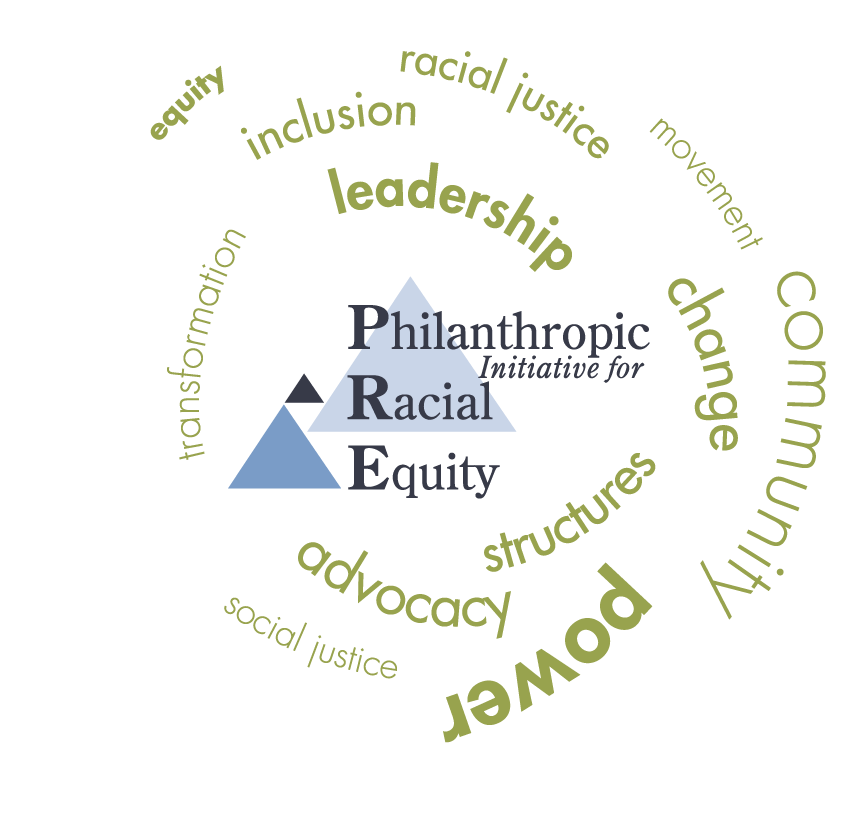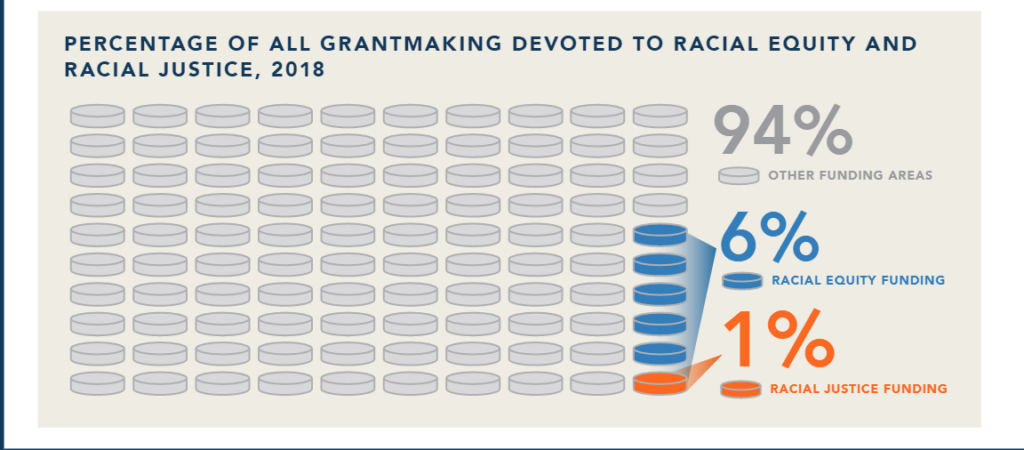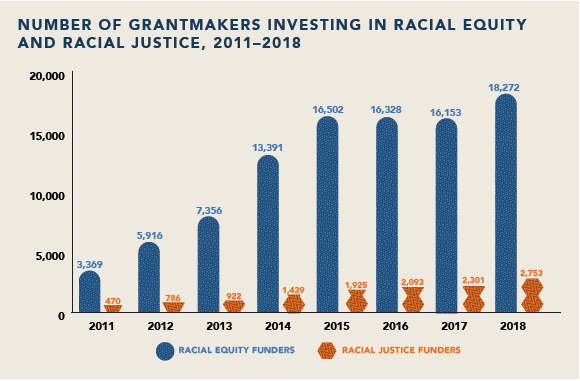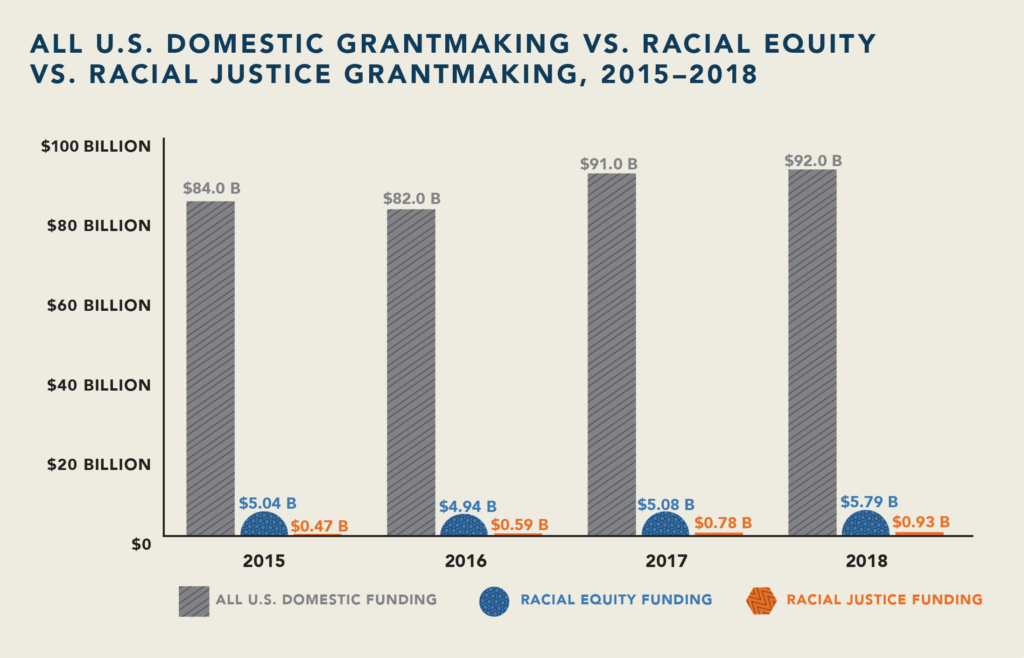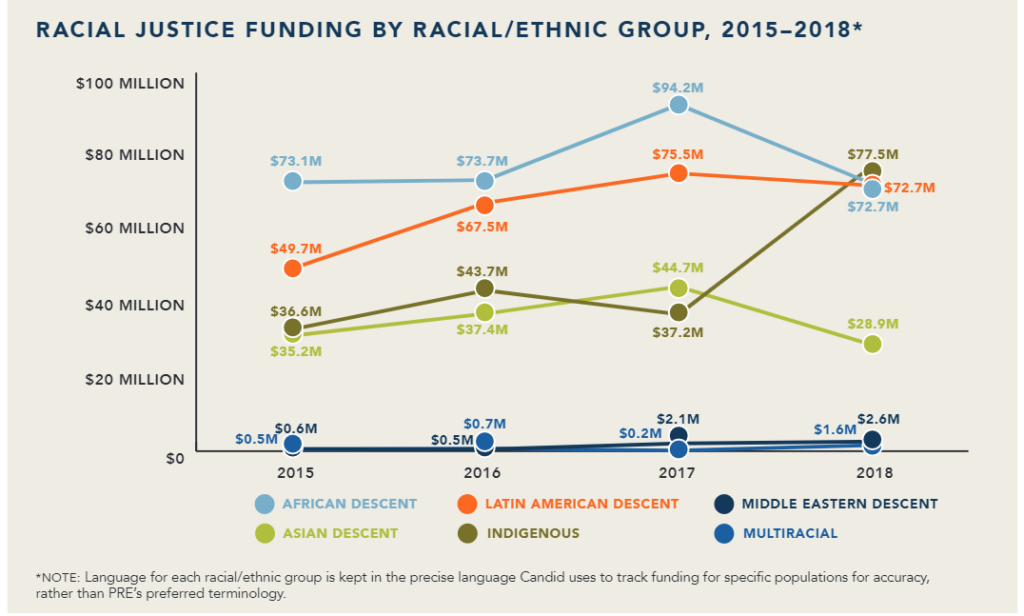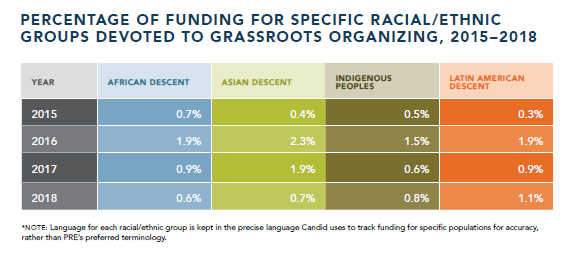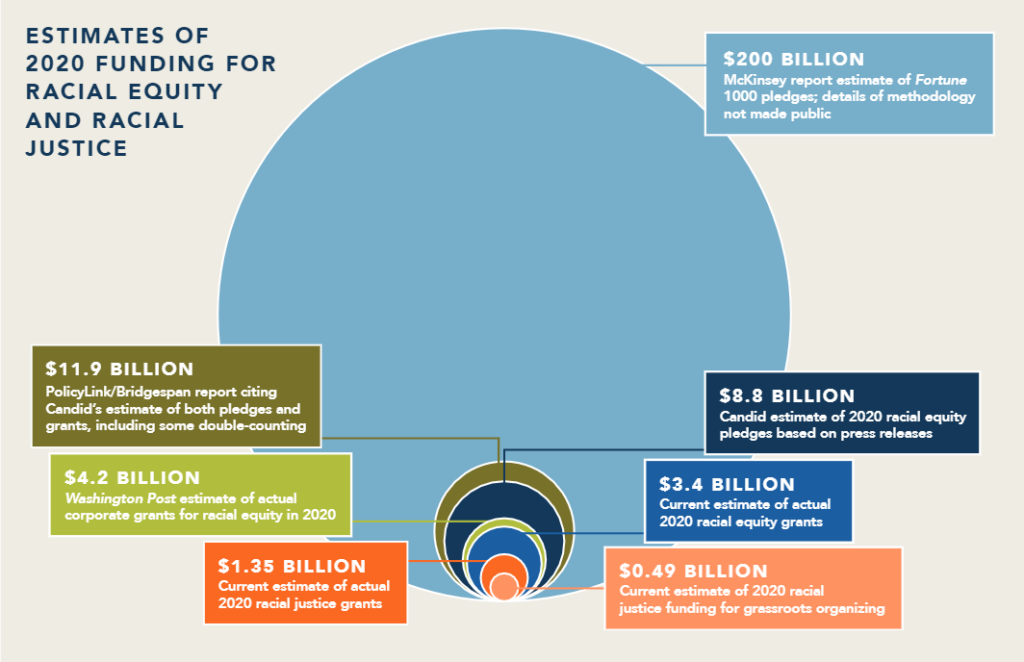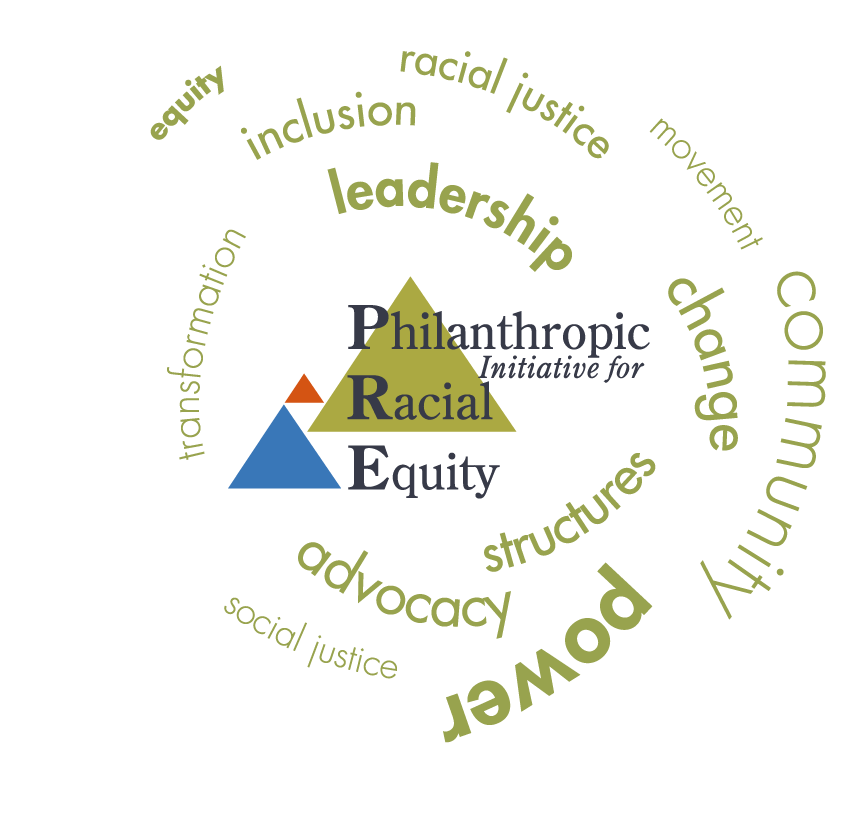Check Out PRE’s Latest Report, Mismatched: Philanthropy’s Response to the Call for Racial Justice
Mismatched: Philanthropy’s Response to the Call for Racial Justice is the most comprehensive assessment of racial equity and racial justice funding to date, providing a detailed analysis of funding from 2015–2018 and a preliminary analysis for 2020. Written by Malkia Devich Cyril, Lyle Matthew Kan, Ben Francisco Maulbeck, and Lori Villarosa, the report examines trends, contradictions, and divergences in funding for both racial equity and racial justice work.
Download Infographics
Download The Executive Summary
Download The Report
Racial Equity Funding vs. Racial Justice Funding
Mismatched: Philanthropy’s Response to the Call for Racial Justice is unique in that it distinguishes between grantmaking for racial equity and grantmaking for racial justice. While related concepts, racial equity and racial justice are not the same. Racial equity focuses on the prevention of harm and the redistribution of benefits within existing systems. Racial justice focuses on power building and transformative goals, explicitly seeking to generate enough power among disenfranchised people to change the fundamental rules of society.
The Mismatches
- Funding for racial equity and racial justice remains a small portion of overall foundation funding — not commensurate with the scale of racial disparities or the demands of racial justice movements.
- The rise in funding for racial equity was portrayed as an overnight occurrence, but in fact there has been slow but steady growth in the scale of funding and the number of funders engaged in racial equity.
- Co-optation of movement language is widespread, and is used to advance projects that are often not responsive to movement’s call.
- Wealthy, white donors too often impose their own priorities, rather than supporting the priorities of movements.
- Funding for racial justice, grassroots organizing, and movement-oriented work remains low.
A Few Highlights from the Findings
Mismatched: Philanthropy’s Response to the Call for Racial Justice finds that funding for both racial equity and racial justice grew steadily from 2011 through 2018. During that time period, funding for racial equity more than doubled, from $2.12 billion in 2011 to $5.15 billion in 2018. Funding for racial justice nearly tripled, from $331 million in 2011 to $926 million in 2018.
Like philanthropy overall, the largest share of racial equity dollars went to education. Meanwhile, more than half of racial justice funding supported human rights. Notably, only 1.3 percent of racial equity funding and 9.1 percent of racial justice funding supported grassroots organizing.
There remains a mismatch between what the movement for racial justice is calling for and what funders are supporting – as evidenced most clearly by the low levels of support for grassroots organizing.
Other findings in the report include:
-
There has been more than a fivefold increase in the number of funders investing in racial equity and racial justice in the US over the past decade as shown below.
-
But the reality is that the amount of racial equity funding compared to overall domestic giving is still a small sum. And the amount going to racial justice is miniscule relative to all domestic foundation giving.
-
Even with the increased attention to the impact and importance of Black-led organizing, especially since the Ferguson uprising in 2014 and the growing focus on Black Lives Matter movement work, of all funding directed toward Black communities, the percentage awarded for grassroots organizing in 2015 - 2018 never exceeded 2 percent. Likewise, even after the global attention to the activism at Standing Rock, the percentage of funding for Indigenous communities for grassroots organizing never exceeded 1.5 percent.
-
Contrary to recent claims from conservative strategists that claim white nonprofits are being hurt by the increasing focus on racial equity issues, more than a third of the top 20 racial equity grant recipients from 2015 through 2018 are organizations that were launched and driven by white business leaders advancing their theories of change for Black and Brown communities. (See more about who got funded starting on page 53 of the report.)
-
Moreover, despite the growth in racial equity and racial justice philanthropy, the majority of support is dependent on a small handful of funders. The top 10 funders of racial justice work from 2015 through 2018 accounted for 60 percent of all racial justice funding. Overreliance on a small number of funders makes groups vulnerable to having their work derailed by changing foundation interests.
Racial Equity and Racial Justice Grantmaking in 2020
Mismatched’s preliminary analysis of 2020 identified $3.4 billion in funding for racial equity work and $1 billion funding for racial justice work. While this number is likely to grow as more funders report their 2020 grantmaking, it is a dramatically lower figure than the $200 billion touted in a McKinsey & Co. report, the $11.9 billion referenced in a Bridgespan/PolicyLink report, or the $8.8 billion listed previously on Candid’s website. Those earlier estimates often included incomplete data, double-counting, and the inclusion of commitments for broad multiyear initiatives and internal corporate spending.
The Recommendations
- Devote More Resources to Racial Equity and Racial Justice. Foundations and corporations should increase funding for racial equity and racial justice work that is led by those communities most impacted and still receiving far less than they need.
- Sustain Funding for Racial Equity and Racial Justice. Grantmakers should ensure that their racial equity and justice funding is set up for sustainable impact, both within their institutions and for movements, by establishing long-term horizons and giving multiyear general operating support for racial justice groups.
- Engage Communities of Color and Movements in Strategy and Funding Decisions. Funders should develop systems and mechanisms to maximize the participation, input, and leadership of communities of color and movements in the design and fulfillment of their strategic thinking and grantmaking priorities.
- Fund Transformational Change Beyond an Equity Framework. Funders should assess their grantmaking using the rubrics for racial equity and racial justice. If your portfolio is exclusively or primarily focused on racial equity, develop a complementary racial justice strategy to support organizations building power of communities of color and working for long-term systemic change.
- Improve Data About Racial Equity and Racial Justice Grantmaking. Report on grants in a timely and transparent manner, providing grants-level detail that uses clear and explicit definitions of racial equity and racial justice. Philanthropy-serving organizations and research institutions should support this work by adopting and disseminating clear definitions of racial equity grants and racial justice grants. Engage grantees in determining the data collection that will be the most useful.
Malkia Devich Cyril, a PRE Senior Fellow, veteran activist and a co-author of the report, outlined why getting these data correct is so important for the racial justice field:
There are real negative consequences for activism when philanthropy doesn’t get the data on racial equity and justice right, or when it propagates the myth that surges in racial justice funding in particular are larger or more temperamental than the reality. When philanthropy gets it wrong, it not only results in diminished funding for those on the frontlines of racial justice, it also dangerously diminishes the perceived scale and impact of movements like the movement for Black lives in public debate, and fuels the kind of conservative backlash we are witnessing today. Bottom line is, philanthropy needs to put in the work to get the data on racial equity and racial justice right.
